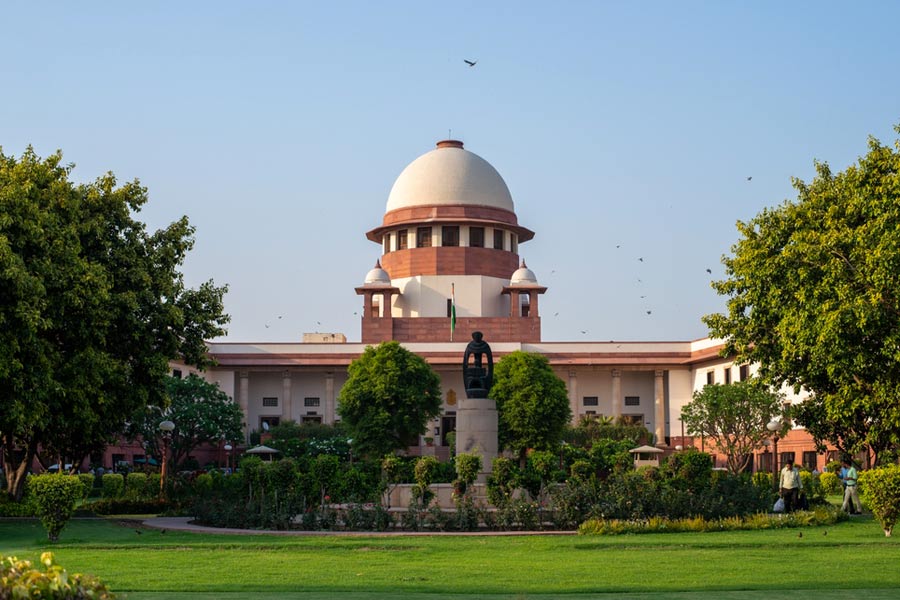The Centre on Wednesday batted in the Supreme Court for sub-classification of Scheduled Castes and Scheduled Tribes so that the more deserving among the disadvantaged communities can receive reservation benefits rather than the “creamy layer”.
Presently, the concepts of sub-classification and creamy layer are applicable only to the OBCs.
The submission was made by solicitor-general Tushar Mehta on behalf of the government before the seven-judge Constitution bench of Chief Justice D.Y. Chandrachud and Justices B.R. Gavai, Vikram Nath, Bela M. Trivedi, Pankaj Mithal, Manoj Misra and Satish Chandra Sharma.
“If the aim of the State and the Constitution is to provide parity, equality of opportunity and social and economic mobility of the backward classes/ castes in need, enabling of sub-classification would ensure that benefits are extended to persons more in need of the said benefits by carefully apportioning the reserved quota within the reserved class. The rationalising of reservations through enabling sub-classification of quota for SCs/ STs would further the guarantee of social justice and further enable the State to penetrate into the lower segments within the backward classes,” Mehta told the bench.
“The sub-classification of the said benefits is a key measure which goes a long way to achieve the said objective (reservation). This ensures that there is a trickle-down effect of reservations,” Mehta said.
The Centre argued that the concept of equality operates at a dual level — between the open category and the backward classes.
Mehta told the court that the 2020 five-judge Constitution bench ruling in the Davinder Singh case had justified the need for sub-classification of the SC and STs to remove the creamy layer.
The seven-judge bench is dealing with a reference made to it on August 27, 2020, by a five-judge constitution bench of the Supreme Court in the State of Punjab Vs Davinder Singh case, wherein it had expressed the opinion that sub-categorisation of SCs and STs was permissible.
“The lack of sub-classification perpetuates the zone of inequality within the reserved category and estops the State from framing appropriate policy in this regard,” Mehta told the bench.
The Centre cited a number of earlier apex court judgments from 1950 to point out that there were apprehensions always of the “benefits being snatched away by the creamy layer” and that “the claim to self-identification as backward being overplayed extravagantly in democracy by large and vocal groups whose burden of backwardness has been substantially lightened, but wish to wear the cloak of a weaker section as a means to compete with people in the general category”.
Mehta also referred to the top court judgment in the 2018 Jarnail Singh case, which said the objective of reservation cannot be achieved “if only the creamy layer within that class bags all the coveted jobs in the public sector and perpetuate themselves, leaving the rest of the class as backward as they always were”.
According to the Centre, the issue of sub-classification amongst the SCs and STs is also in essence an issue of rationalising the affirmative action regime in the country.
However, the SG hastened to add that though the Centre was keen on sub-classification within the SCs and STs, it was not in any manner arguing for dilution of the absolute and untrammelled powers enjoyed by the President under Articles 341 and 342 for granting SC-ST status to any particular community.
“It is necessary to clarify that sub-classification would not tinker with the finality of determination under Articles 341 and 342. It is submitted that therefore the argument that sub-classification hinders the finality encapsulated in Article 341 is misplaced as the said exercises are separate. State governments or even the Hon’ble Court in their constitutional jurisdiction have no power except to give effect to the notification issued by the President under Article 341,” Mehta said.










